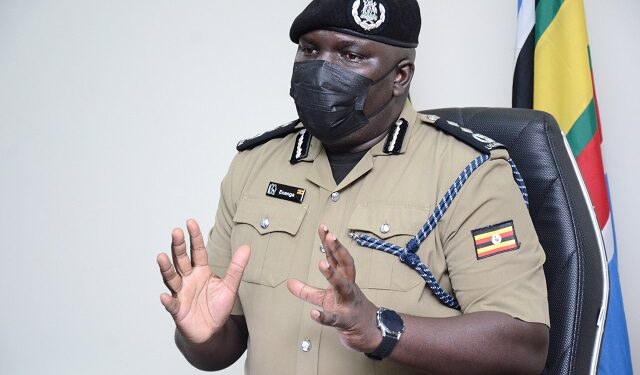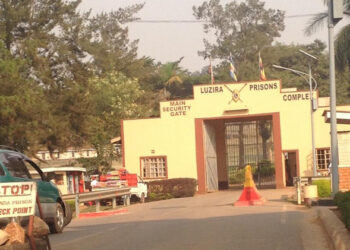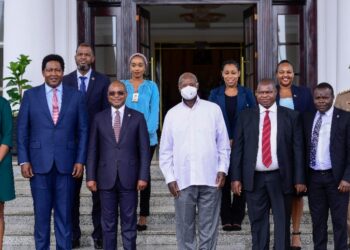Police have identified the three people who lost their lives in the deadly double suicide bombings in Kampala city centre on Tuesday.
In a statement issued on Wednesday, Uganda Police Spokesperson Fred Enanga identified the victims as PC Kungu Amos, a police officer attached to Kampala Central Police Station (CPS), Basibe Ismail who also died on spot at CPS and Christopher Sande, who died on spot from the bomb attack along Parliamentary Avenue.
“May their souls rest in eternal peace. We want to assure the families of the deceased that we shall ensure the perpetrators behind the terror acts are brought to book, in pursuit of justice for their loved ones,” Enanga said.
The police mouthpiece also cautioned Ugandans that terrorist threats are real and are from a known enemy, the Allied Democratic Forces (ADF).
” We believe thet could bw having a wider ideological motive of violence towards our citizens and country, but we are determined to track them all down and hold their agents, operatives and collaborators accountable for the senseless terrorist attacks,” Enanga further assured Ugandans.
Following the terror attack on Kampala, the Islamic State came out to claim responsibility for the two deadly explosions.
At least three people were killed and 33 were injured in the Tuesday morning attacks, which took place within about 550 yards and three minutes of each other in Kampala’s business district, police spokesperson Fred Enanga said. Three suspected suicide bombers also died in the blasts.
Police also shot and injured a fourth would-be suicide bomber in Nansana and during a search of the alleged attacker’s residence, security operatives recovered a suicide vest and other bomb-making equipment, Enanga revealed.
Police blamed the attack on the Allied Democratic Forces, an Islamist group that started an insurgency against Uganda’s President, Yoweri Museveni, in the 1990s and in 2017 pledged allegiance to Islamic State, or ISIS. Islamic State later claimed responsibility for Tuesday’s attack through its Amaq news agency.
The militant group’s leadership formally recognized the ADF as one of its affiliates in July 2019. The ADF usually operates from the jungles of the eastern Democratic Republic of Congo, but European security officials say it has recently become emboldened to launch high-profile attacks in Uganda and neighboring Rwanda after receiving sizable funding and technical assistance from Islamic State’s central leadership.
At a news conference Tuesday, Ugandan police showed surveillance-camera footage from the scenes of the blasts. The first attacker, wearing a dark blue hooded jacket, detonated a heavy backpack as he approached two police trucks near Kampala’s central police station, hitting more than a dozen officers, including some inside the station, Enanga said.
A second video showed two alleged suicide bombers riding on motorcycles close to the main entrance of Uganda’s parliament before setting off their explosives. The blast set several vehicles on fire and sent dozens of law makers scampering for safety. Local authorities switched off electricity supply to buildings in the central business district Tuesday afternoon, citing the possibility of more attacks.
On Oct. 25, ISIS said ADF operatives were behind an explosion at a restaurant in a Kampala suburb that killed a waitress the previous day—the first time ISIS claimed responsibility for an attack in Uganda. On Oct. 26, several people were injured when a suicide bomber detonated an explosive device on a bus driving in the outskirts of Kampala.
Police at the time said the perpetrator of the bus attack was also a member of the ADF, although there hasn’t been a formal claim of responsibility from ISIS for that bombing.
Do you have a story in your community or an opinion to share with us: Email us at editorial@watchdoguganda.com













